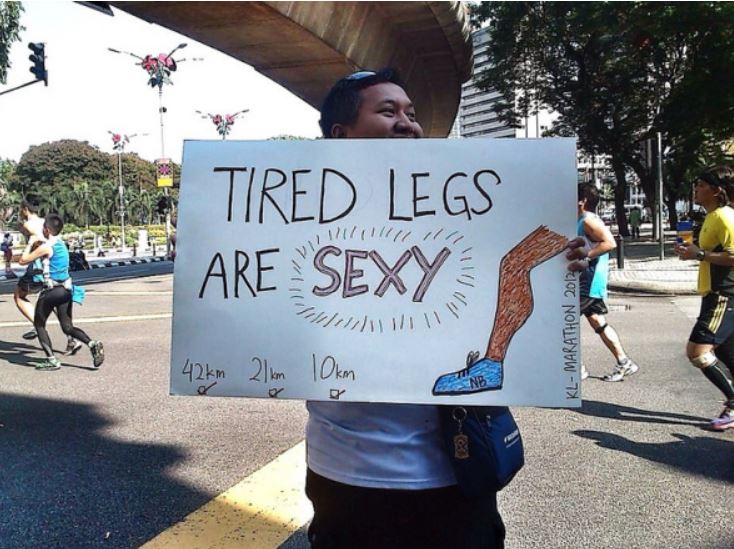Have you ever wondered what running 26.2 miles does to the body? If you’ve done it and spent time walking down stairs backwards you might already have a pretty good idea, but what’s happening at a cellular level? Is running a marathon even healthy? Let’s be honest, most of us have questioned if it’s good for us right about mile 25 when everything hurts! And yet…we do it again because something in us knows there’s good when DONE RIGHT.
Let’s be honest, most of us have questioned if it’s good for us right about mile 25 when everything hurts! And yet…we do it again because something in us knows there’s good when DONE RIGHT.
Which is to say that you will have less impacts from running a marathon if you’ve done a proper build up, you’ve been strength training and fueling.
A lot of what I’m about to share from the science will have some people pumping their fists and saying “see we told you running is bad for you.” But that’s not really the take away here and most are very temporary effects and don’t compare to the overwhelming health benefits of long distance running.
That being said, we are not claiming that marathon running is for your health. If healthy and longevity is the focus, I don’t know that 26.2 is on the list.
What Happens to Your Body After a Marathon
Coach Laura Norris and I dove in to the research to bust certain myths, find answers and help you better understand why we push so hard for post marathon recovery time!
Here I’ll summarize our key points from the Tread Lightly podcast, but you should listen to the full episode embedded below!
And most importantly, realize that these things are happening independent of your pace!! Running faster doesn’t meant it impacts the body less.
So let’s dive in first with what happens to your body after running and a marathon. While some of these can sound a little scary, running a marathon is not bad for your health (assuming you have no underlying conditions).
#1. You Shrink
That’s right! Running in general compresses your spinal discs and so any run over 30 minutes will cause you to be a bit shorter, with the duration of the marathon you can finish up to 1/2 inch shorter!
While there may be disc compression that leads to us being shorter, the studies say there is no real long term degeneration happening. And we know that redhydrating plumps them back up an another study showed running may actually help reduce degeneration
Beyond your discs, there’s actually some loss from your foot collapsing downward by up to 5mm. Again short term and likely muscle fatigue.

#2 Reduction in Lung Function
A 2019 review in Sport Medicine found that you have up to a 15 to 25% decline in function in your lungs and in your diaphragm muscles due to the fatigue of heavy breathing for so long in a race. Again, that recovers pretty quickly.
It just means that’s why you feel tired and out of breath, probably just walking around after a marathon.
But again, goes to show that doing this race, running is a total body sport. We see it impact your bones and your muscles and everything.
#3 Brain Fog or Heightened Emotions
The other thing that many of you have probably experienced is maybe you have just a lot of emotions at the finish. I mean, I cry at every finish line! But you may also feel like I can’t really make a decision or I can’t think to tell my family where to meet me.
That is brain glycogen that’s been depleted.
Your brain runs on carbohydrates. And even when you’re fueling your best, you’re probably not quite hitting the exact amount that your body and your brain is using because you would just be taking in so much.
#4 Swollen Feet
We often talk about needing to buy larger shoes as runners and that is due to feet swelling with more time on them. In fact, one study showed they grow 4 to 8mm which is why we need that longer shoe or you might need a wide on race day.
But also, your feet will swell more AFTER finish the race.
Blood flow is no longer being diverted to muscles, so it may start to rush back to other areas like your feet. Possibly why those running recovery sandals feels so dang nice.
#5 Systemic Inflammation
Ok, you know things are inflamed…but what about your heart?
The same 2019 study, they found that troponin levels were elevated for up to four days after a marathon. Troponin is a biomarker that indicates acute damage to the heart muscles.
What’s actually really significant about this study is the conclusion WAS NOT that marathons damage your heart. It was more a notice that if you get bloodwork done right after a race you’ll have elevated levels of this and other markers like C-Reactive protein, creatine kinase, lactate dehydronase (basically muscle, tendon, ligament damage).
It’s another reminder that we don’t want to jump right back in to training because there are things you can’t see or feel happening.
We cover even more in the show, but these are some of the highlights that help answer that so common question of what does running a marathon really do to you??
And I hope, you can see here that most things are very temporary, but indeed are important and reinforce why resting is so crucial!!
Is it true that you need one day of recovery for every mile raced?
This is an adage that both Laura and I heard early in our running careers. In some ways it makes sense because the longer the race, the more recovery your body needs.
But once you’ve been running for awhile taking 26 days off of running after a marathon might not being entirely necessary, depending on your goals. That being said, the elites do it!! They often take a month or even 2 off after their big goal marathon race of the year.
Again, all of these data points remind us that recovery is so much more than you “just feeling ready to run”. The body is doing a lot of stuff behind the scenes that will actually help you to comeback fitter, after taking the appropriate amount of time to recover.
In general, we recommend 10-14 days of no running for pretty much everyone. Below you’ll find additional resources for a full post marathon return plan.
What will lessen the impact of running a marathon?
As noted earlier, having done the appropriate training is a huge factor. It doesn’t mean that being super well trained eliminates everything, but it certainly helps.
If this is your first marathon, there is likely going to be more recovery needed as your body adapts to this massive new stimulus.
If you fueled and hydrated well with pre and intra race carbs, you can actually help to speed up healing.
And honestly, let’s not pretend being younger doesn’t help too. 🙂
Listen to the full podcast episode here:
And as always, we love hearing from you with questions.
We start every episode with listener questions and you often guide our big topics as well! So if you have more questions about marathon training let us know.
You can also find more marathon tips here:
And of course, you never have to go it alone. If you want help with training and recovering the right way, reach out about 1:1 online run coaching with any of the 12 Run To The Finish coaches.
Study References from Show:
- PMID: 34541607
- PMID: 23705863
- PMID: 39094181
- PMID: 3169192
- PMID: 31045685
Other ways to connect with Amanda
Instagram Daily Fun: RunToTheFinish
Facebook Community Chatter: RunToTheFinish
Sign Up to Receive a Weekly Newsletter of Tips

